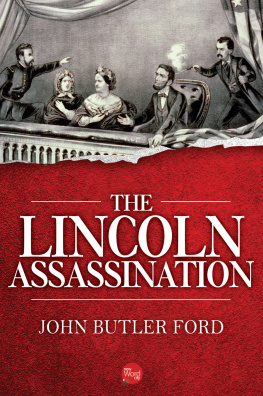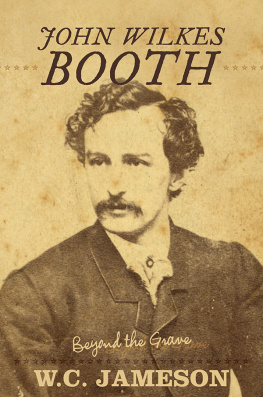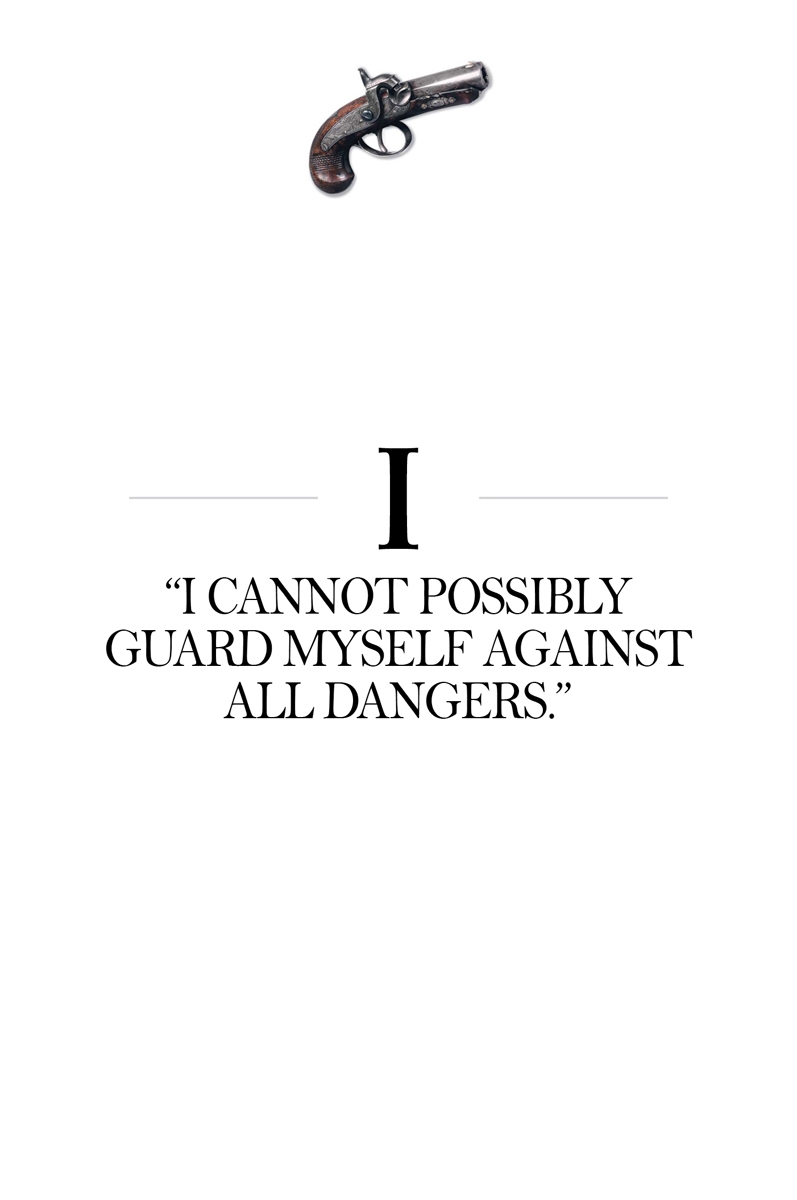AFTER ROBERT E. Lee surrendered to Ulysses S. Grant at Appomattox on April 9, 1865, Northerners took to the streets in celebration. President Abraham Lincoln rejoiced, too, but two days later, as he and his wife Mary Todd Lincoln dined with friends in the Red Room of the White House, the president seemed sad, even depressed.
One of those around the table, the presidents longtime friend Ward Hill Lamon , later wrote that Lincoln talked about dreams. It seems strange, the president said, how much there is in the Bible about dreams. There are, I think, some sixteen chapters in the Old Testament and four or five in the New in which dreams are mentioned. He went on to say that believers in the Bible, must accept the fact that, in the old days, God and His angels came to men in their sleep and made themselves known in dreams. Lincoln quickly dismissed the topic: Nowadays, dreams are regarded as very foolish and are seldom told, except by old women and young men and maidens in love.
Mary, who had endured nightmares all her life, asked her husband if he believed in dreams.
I cant say that I do, Lincoln replied, but I had one the other night which has haunted me ever since.
You frighten me, sir, Mary said.
I am afraid that I have done wrong to mention the subject at all, he said. But somehow the thing has got possession of me, and like Banquo s ghost, it will not down.
The first lady asked him to tell the story, and after some hesitation, he did. One night, he told his friends, he had stayed up late waiting for important war dispatches. When he went to bed, he fell asleep and began to dream. There seemed to be a death-like stillness about me, he recalled. Then I heard subdued sobs, as if a number of people were weeping. I thought I left my bed and wandered downstairs. There the silence was broken by the same pitiful sobbing, but the mourners were invisible. I went from room to room. No living person was in sight, but the same mournful sounds of distress met me as I passed along. It was light in all the rooms. Every object was familiar to me. But where were all the people who were grieving as if their hearts would break? I was puzzled and alarmed. What could be the meaning of all this?
Lincoln went on: I kept on until I arrived in the East Room , which I entered. There I met with a sickening surprise. Before me was a catafalque , on which rested a corpse in funeral vestments. Around it were stationed soldiers who were acting as guards, and there was a throng of people, some gazing mournfully upon the corpse, whose face was covered, others weeping pitifully. Who is dead in the White House? I demanded of one of the soldiers. The president, was the answer. He was killed by an assassin. Then came a loud burst of grief from the crowd.
Everyone sat in silence. Mary was the first to speak: That is horrid. I wish you had not told it.
The president attempted to calm her. It was only a dream, Mary, he said. Dont you see how it will turn out? In this dream, it was not me, but some other fellow that was killed.... Let us say no more about it and try to forget it.
FIVE DAYS LATER, Lincoln would be lying in state in the East Room, the victim of John Wilkes Booths bullet.
Not that there was any precedent in American history for his murder. Each of the fifteen presidents who had served before Lincoln had met his end from illness or old age. Lincolns Secretary of State, William H. Seward who would survive an attempt on his own life on the same night Lincoln was killed once wrote that peaceful presidential succession was a source of national pride. Assassination, he said, is not an American practice or habit, and one so vicious and so desperate cannot be engrafted into our political system.
The Civil War, though, had upended traditional values and made the president the target of furious hatred. Even before the war, secessionists in Maryland had plotted to kill Lincoln as he traveled to Washington to be sworn into office. Lincolns security detail learned of the plot in time to bring the president-elect to Washington unharmed.
Lincoln had been receiving threatening letters since shortly after he was nominated. Some were near-incoherent outbursts of rage, such as the one addressed to Old Abe Lincoln from Pete Muggins. It opened: God damn your god damned old Hellfired god damned soul to Hell. Once the war started, the amount of White House hate mail proliferated. The presidents assistants burned many of the letters, but by March 1865, a folder Lincoln kept on his desk labeled Assassination held some eighty death threats. And among the gifts logged in by the White House were numerous baskets of fruit, many mailed from the South, containing apples, peaches, or pears that had been injected with poison.
Lincoln accepted the risk as part of the job. I cannot possibly guard myself against all dangers, he said, unless I shut myself up in an iron box, in which condition I could scarcely perform the duties of president. He said, too, If anyone is willing to give his life for mine, there is nothing that can prevent it. Once, when an artist who was painting Lincolns portrait saw the assassination folder and asked him about the letters, the president told him, The first one or two made me a little uncomfortable, but they have ceased to give me any apprehension. I know I am in danger, but I am not going to worry over little things like these.
Lincoln narrowly escaped murder in 1864. A bullet shot by an attacker who was never caught pierced the presidents hat as he rode to the Old Soldiers Home four miles north of Washington. There a thirty-four-room stone cottage if it can be called that - was maintained to relieve the first family from the worst of Washingtons muggy misery in July and August. Early one such evening, the president was riding home alone from the White House when what seemed to be a stray gunshot rang out. Lincolns horse reared, and the presidents top hat fell off as he tried to gain control of the animal. When he arrived at the cottage and told a guard, John W. Nichols, what had happened, Nichols strolled down the drive and found the presidents hat with holes where a bullet had pierced the crown. Lincoln shrugged off his narrow escape as a foolish hunting accident, but Secretary of War Edwin Stanton added men to the presidents security detail, and the chief executive never again left Washington without an escort.
By midsummer, with Confederate forces trapped by Grants army in Petersburg, Virginia, many Southern sympathizers were hoping to see the president dead. Newspapers in the South featured advertisements offering a sizeable reward to anyone who killed the president, and government detectives in Washington learned of plans to assassinate or kidnap the president. So did Ward Lamon , who served as marshal of the District of Columbia and thought of himself as the presidents de facto bodyguard.
Lincoln was inclined to dismiss their fears. He once described the barrel-chested Lamon as a monomaniac on the subject of my safety. All the same, the president consented to several security measures. Partitions were erected on the second floor of the White House so Lincoln could reach his office without passing the usual crowd gathered outside mostly favor-seekers who were never screened for weapons. And for the first time, guests at White House functions were told to remove coats or wraps that might conceal guns or knives.
Four police officers from the Washington city force were enlisted to serve as Lincolns regular bodyguards a number that seems, in hindsight, comically inadequate. Wearing plain clothes and carrying .38-caliber revolvers, two worked from 8:00 a.m. to 4:00 p.m., another from 4:00 p.m. to 12:00 a.m., and a fourth stood guard from midnight to 8:00 a.m.





